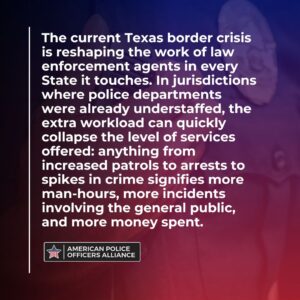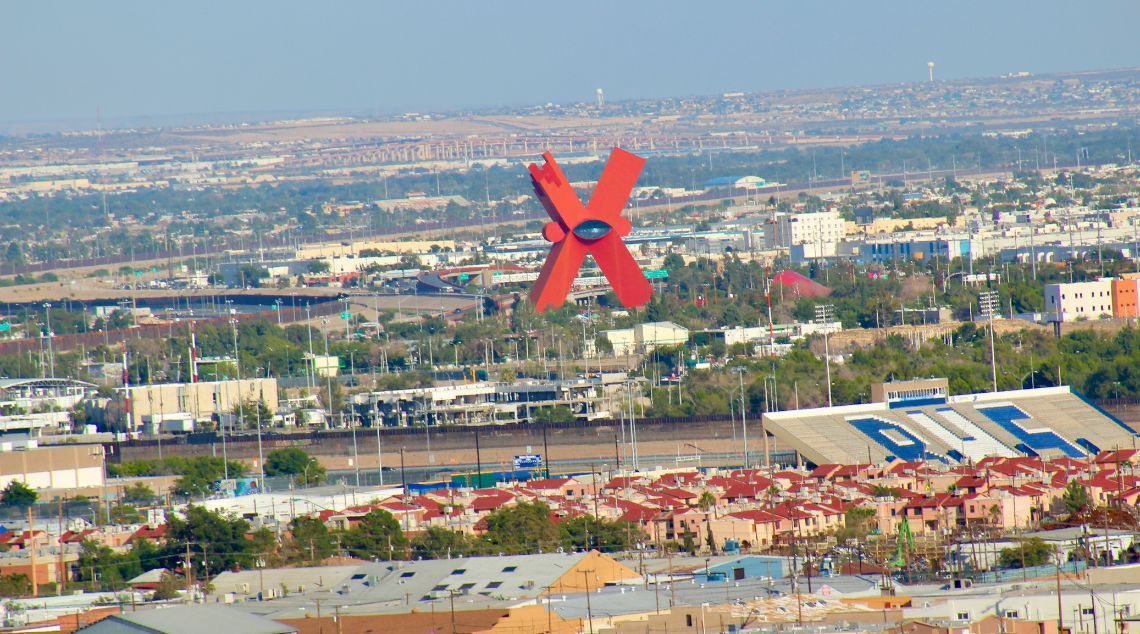Immigration has always been considered a “hot topic” for voters. It touches upon many aspects that we consider essential while often tugging at heartstrings: from ensuring basic needs such as shelter or safety to wider long-term concerns about the economic viability & safety of our country.
As a result, it’s hard not to have a strong opinion on immigration. As conditions near our Southern border worsen, voter’s attitudes are also shifting. However, the Texas border crisis is, first and foremost, a national security concern – and its impact will be felt the most by police officers and law enforcement agents, especially in the southern states, but also across the country.
What is Happening With the Texas Border Crisis?
The United States has been dealing with a rising number of illegal crossings for decades. However, most security experts agree that May 2023 marked a “before and after” point: this is when the provisions of Title 42, alongside all other Coronavirus-related legislation, ended for good.
Between 2020 and 2023, Title 42 allowed immigration officers to stop asylum seekers on the other side of the border, in the name of public health. But many of these migrants simply waited out the pandemic in Northern Mexico – and as soon as the Biden administration gave them the “go ahead”, they flocked to Texas in unprecedented numbers.
Between 2018 and 2020, border officials apprehended between 40,000 and 80,000 illegal crossers per month. In December 2023 alone, they apprehended over 300,000. Each one of these migrants had to be detained and housed by the State while awaiting a hearing before they could be deported. Many more managed to escape police notice or created shanty towns (or “migrant camps”) around border cities like El Paso.
As it proved too much for a single state to handle, many political bodies tried to arrange alternatives in other states. However, even the wealthier (and traditionally more “migrant-friendly”) northern states quickly felt the strain.

Immigration in the Eyes of the Public
Naturally, the deepening crisis has brought the topic of immigration closer to people’s minds. In the immediate aftermath of May 2023, public attitudes were generally one of compassion, especially as liberal media offered heartbreaking (and often heavily curated) pictures of migrant camps and tearful children.
Eventually, the goodwill gave way to more pressing concerns. Between October 2023 and January 2024, more and more voters realized that we could not help them all – at least, not at the cost of our personal safety.
Currently:
- Just 38% of voters across the country approve of Biden’s handling of the Texas border crisis.
- As of January 2024, immigration overtook inflation as the nation’s “top concern”, according to Harvard University.
- Even northern Blue States like Massachusetts are now less likely to support policies that favor the arrival of more migrants.
- Even traditionally liberal outlets now admit that the average American citizen is concerned about immigration or views it as a major threat.
How Will This Impact The Political Landscape?
The current Texas border crisis is reshaping the work of law enforcement agents in every State it touches. In jurisdictions where police departments were already understaffed, the extra workload can quickly collapse the level of services offered: anything from increased patrols to arrests to spikes in crime signifies more man-hours, more incidents involving the general public, and more money spent.
At the same time, even though most immigration enforcement actions fall under the purview of federal offices, local police are also seeing their relationship with the public affected. Whether due to resentment or fear, immigrant communities are now increasingly reluctant to involve the police when dealing with local violent incidents. This makes routine anti-crime exercises harder and less effective at a time when police officers are already facing multiple political threats.
The effects are now spilling over to other spheres: in New York City, the budding migrant crisis is now forcing Mayor Eric Adams to cut funds for other programs. The City will freeze hiring for police officers and will cut nearly $1 billion from its education budget. The reason? One of the country’s wealthiest cities is struggling to find the $11 billion it needs to deal with new migrants. Meanwhile, in Chicago, the Illinois House of Representatives has called Mayor Brandon Johnson to the stand over its inability to deal with the influx of arrivals. Whether this played a role in Johnson’s recent hospitalization over “panic attacks” is unconfirmed – but it’s clear that the increasing heat is affecting everyone’s mental health.
Image Credit: Photo by Grace Estrada on Unsplash










